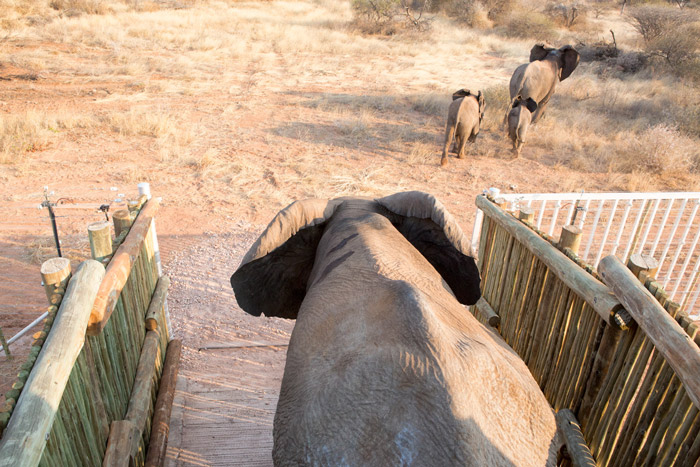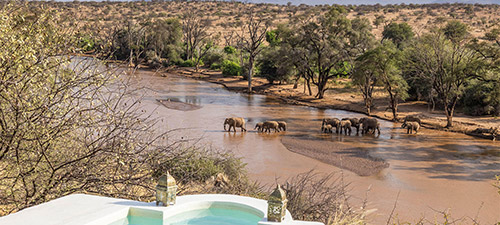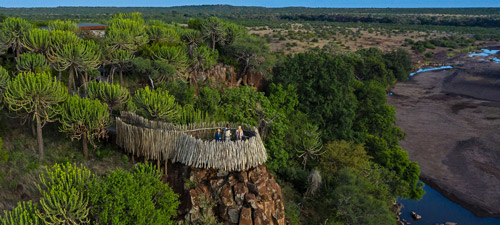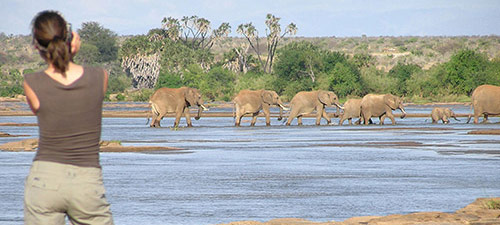Written by: Jay Roode
The Great Elephant Census of 2016 has just published its findings and they are shocking. African elephant populations are down 30% in the past seven years and individual numbers stand at only 350,000 across 18 African countries. One elephant is being poached every 15 minutes for its ivory – that’s 40,000 a year.
In an era during which the wilderness is shrinking, conservation areas are becoming ring-fenced and human populations are expanding; the space for wild things is dwindling. We stand at the edge of a world where the magnificent creatures that have travelled with us through the ages, and form part of humanity’s fabric, are reduced to theme park amusements in zoos and synthetic wilderness parks.

We too readily forget that the wilderness is not a luxury but a necessity for the human spirit. This is an era that demands urgent conservation philanthropy, particularly from the private sector, with regards to creating or expanding habitat for wild creatures and protecting them for future generations.
This concept became avidly clear when I recently accompanied the Shared Universe Foundation on the relocation of a family group of eight elephants into the newly expanded conservancy of Mapesu. The reserve was historically used for cattle farming and hunting and hasn’t seen resident elephants for over 100 years. But all that is about to change.

The Limpopo valley is a vast wilderness area; a quiet primitive place that is home to some of South Africa’s most noteworthy Khoi San rock art and of course to the ancient kingdom of Mapungubwe – a UNESCO World Heritage Site. This valley has enormous potential as a vast transfrontier conservation area, which is a vision actively promoted by Shared Universe.
Poaching has reached unmanageable proportions in certain parts of the valley, and this elephant family was in desperate need of a new home.
I was completely unprepared for the scale of the operation and the dedication of the people involved. It was a massive undertaking involving vets, helicopters, large cranes, specially modified transport containers and a brave and dedicated ground crew.

The operation got off the ground before dawn but it was only at around midday that the elephants were located and nudged towards our position by the patient buzzing of an experienced helicopter pilot.
The heat seemed to flow upwards and the entire landscape shimmered under a relentless assault. Even the giant baobabs seemed to melt like silvery grey wax; their voodoo limbs reaching to the heavens in a desperate plea to end the inferno.
We were all concerned that the elephants may succumb to these extreme conditions, so the operation had to happen quickly and seamlessly to ensure there were no fatalities. The highly experienced crew managed to dart and load these slumbering giants into the specially modified transport containers within a couple of hours.

The cavalcade of trucks, surrounded in billows of red dust, ponderously made its way along rough dirt tracks on their long drive through silent rock and unbounded space to Mapesu and freedom.
Once the antidote was administered, it was thrilling to hear the thundering bangs and thumps as the elephants slowly awoke and came to their feet. The huge containers shook and quivered with their colossal load.

Although it had been a taxing day and everyone was fatigued after what had been a herculean effort, all was forgotten as we stood in a reverential hush as these gentle behemoths slowly walked out of the truck and into their new home.
The landscape itself seemed to expand and welcome home these gentle hearts, and a sense of completeness pervaded the air. An essential puzzle piece had been restored.

Elephants are a keystone species and crucial to Africa’s forests and savannahs. Creating a sustainable elephant population will require a coordinated and multi-faceted effort. We all need to be committed to the belief that, through innovation and dedication, we can conquer what initially appears insurmountable.
To comment on this story: Login (or sign up) to our app here - it's a troll-free safe place 🙂.![]()








